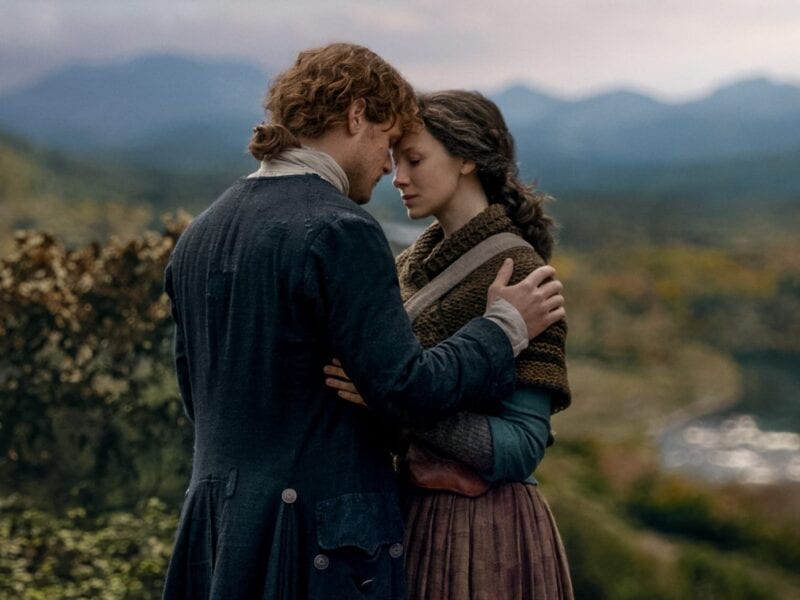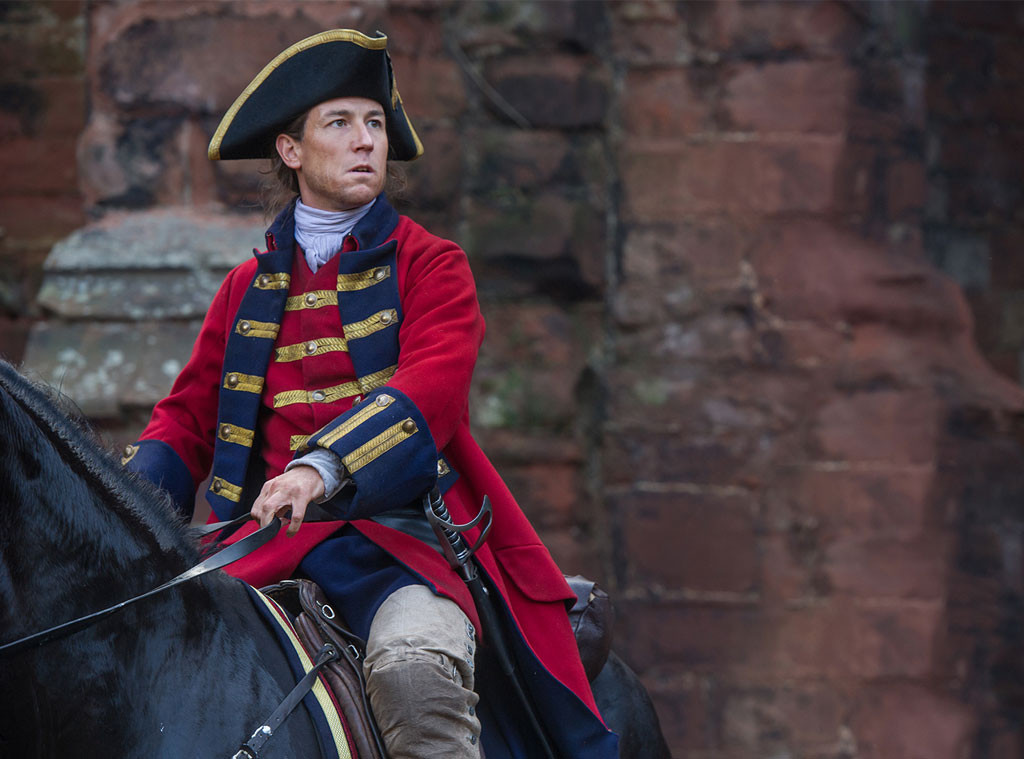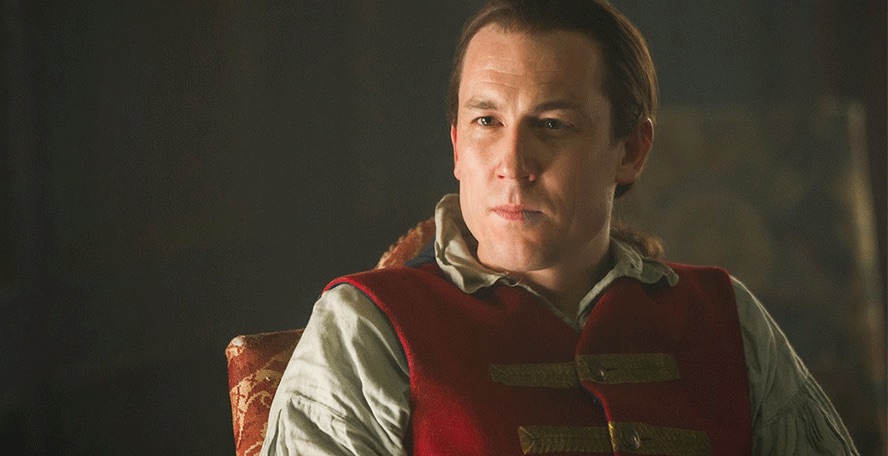Is Black Jack Randall A Psychopath
“Black Jack Randall was an incredible foil to Jamie and Claire, but this is the new world now.” “We’re going into new territories and new villains,” the actor added with a glint in his eye. The third encounter with Black Jack Randall is the climax, the point where the stakes are highest. Jamie’s been captured and seriously hurt, Claire’s come to save him, but Randall turns up and takes her captive, threatening her life. This -has- to be a credible threat.

I had a male reader (Justin Brady (@RandomAngst), who runs the Random Angst book review/rating site at www.randomangst.com) on Twitter just today who said he’d just finished reading OUTLANDER and enjoyed it a lot “until the prison chapters.” I tweeted back that I’d be kind of worried about him if he’d _enjoyed_ the Wentworth part {g}, to which he said, “but why put our hero through such pain and suffering? :)”, adding in the next, “I know I’m late to the #Outlander party & you’ve probably already addressed this; but that was intense emotional, physical pain.”
I was on my way out to dinner, so said I’d reply to him later (haven’t done that yet), but have been thinking at brief moments just _how_ to reply to that. The simple answer is just that that’s what I saw happening, but that’s not enough for the reader. There always _is_ a reason why things happen or are necessary, whether I know what that is when I write it or not. So what is it here?
In part, it’s because it’s a High Stakes story. Almost everybody understands that you have to have _something_ at stake for a story to be good. And way too many thrillers and sf/f novels assume that nothing less than the Fate of the Known Universe will do {g}, these authors mistaking scale for intensity. No matter what the background may be, a story that focuses on the impact of events on one or two individual _lives_ will be–generally speaking–much more engaging and emotionally intense than one where everyone is just rushing around trying to save a planet or get their hands on the fortunium bomb that could Destroy Everything!!
So OUTLANDER is a high stakes story–on an individual level–throughout. It’s a love story, sure, and it’s all about what people will _do_ for the sake of love. Claire, for instance, chooses to abandon the life she knew (and was about to reclaim post-War), the safety of the 20th century (and she of all people would value that safety, having come through such a war), and the husband she’d loved. She chooses hardship, danger, and emotional pain, in order to be with Jamie.
Is Black Jack Randall A Psychopath Story
But love for these two is always reciprocal. It’s not about one partner making a sacrifice for the other’s sake. Throughout the story, they keep rescuing each other. And the stakes are high. Jamie marries Claire originally in order to save her from Black Jack Randall. Would that be a striking thing to do, if Jack Randall was not, in fact, a serious threat? He _is_ a serious threat; we learn that from Jamie’s backstory. The man’s a genuine sadistic psychopath, who has essentially destroyed Jamie’s family and seriously injured him, both physically and emotionally. And here’s Jamie swearing to give Claire everything he has; the protection of his name and his clan–and the protection of his body–in order to save _her_ from this man.
He then does save her, physically and immediately, from Randall, when Randall captures her and assaults her at Fort William–even though by doing so, he puts not only himself, but everyone with him, in serious danger, _and_ does so at some emotional as well as physical cost. “I was tied to that post, tied like an animal, and whipped ’til my blood ran…Had I not been lucky as the devil this afternoon, that’s the least that would have happened to me. ….[But] when ye screamed, I went to you, wi’ nothing but an empty gun and my two hands.” The stakes are higher; the threat to Jamie (and Claire) from Captain Randall is increased.
One, two, three. The Rule of Three. It’s one of the important underlying patterns of story-telling; one event can be striking.The next (related) event creates resonance.But the third brings it home—WHAM.(That is, btw, why classic fairy tales always involve three brothers, three sisters, three fairies, etc.—and why the most classic form of joke always starts, “A priest, a minister and a rabbi…” The climax of the story, the punchline of the joke, always comes on the third iteration.)The third encounter with Black Jack Randall is the climax, the point where the stakes are highest. Jamie’s been captured and seriously hurt, Claire’s come to save him, but Randall turns up and takes her captive, threatening her life.
OK. This -has- to be a credible threat. Ergo, we have to have seen (and heard about) the real damage Randall has done to Jamie thus far; we have to be in no doubt whatever that he’d do real damage to Claire. We can’t just _say_, “Oh, he’s _such_ a nasty person, you wouldn’t believe…” We _have_ to believe, and therefore appreciate _just_ what Jamie is doing when he trades what’s left of his life for Claire’s.(Show, don’t tell, you know?)

And because we do believe that, we share both Jamie’s despair and Claire’s desperation.
So, OK. Throughout the book, we’ve seen that love has a real cost. Jamie and Claire have built a relationship through honest struggle, a relationship that’s _worth_ what it’s cost them. This is the final challenge, and Jamie’s willing to pay what will apparently be the ultimate cost.
Why would I throw that away? To have him escape rape and torture (he–and we–_know_ what’s coming) by the skin of his teeth would be to undercut his sacrifice, to make it of little moment. (It would be like someone turning up in Gethsemane and telling Christ, “Hey, buddy, you don’t _really_ have to do this. Come with me, I got a secret way outta here…”)
So love _has_ a cost, and it’s a real one. But they do rescue each other, and Claire saves not only his life, _but his soul_. (Yes, it is redemption and resurrection, and yes, there’s Christ imagery all through the story–it was my first book, OK?) His soul wouldn’t have been in danger, had he not been really and truly nearly destroyed by his sacrifice.
I.e., had Claire shown up with reinforcements in the nick of time and saved him before he’d been put through such pain and suffering….well, then it would have been a nice, heart-warming story in which Hero and Heroine conquer evil and ride off into the sunset together. But it wouldn’t have half the power of a story in which Jamie and Claire _truly_ conquer _real_ evil, and thus show what real love is. Real love has real costs–and they’re worth it.
Is Black Jack Randall A Psychopath Whisperer
I’ve always said all my books have a shape, and OUTLANDER’s internal geometry consists of three slightly overlapping triangles. The apex of each triangle is one of the three emotional climaxes of the book: 1) when Claire makes her wrenching choice at the stones, 2) when she saves Jamie from Wentworth, and 3) when she saves his soul at the Abbey. It would still be a _good_ story, if I’d had only 1 and 2–but (see above), the Rule of Three. A story that goes one, two, _three_ has a lot more impact than just a one-two punch.
In just one season, Outlander has managed to bring us one of the worst TV characters we've ever encountered in Black Jack Randall (Tobias Menzies), and tonight, it gets worse.
But is he the most unforgivable TV character...of all time?

Because nothing unites TV lovers like common enemies, we decided to take a look back at some of TV's other unforgivable characters, and the evil deeds we've never forgotten about. And rank them. Is Black Jack #1?
You can find out right here: 17 TV characters we'll never forgive.
Get ready for a lot of murder. Like, so much murder. In fact, you might want to stare at these nice, pleasant gifs for a while before diving in:
Trending Stories
Are you happy yet?
Then click through our new gallery of 17 TV characters we will never forgive and tell us if you agree with our #1...